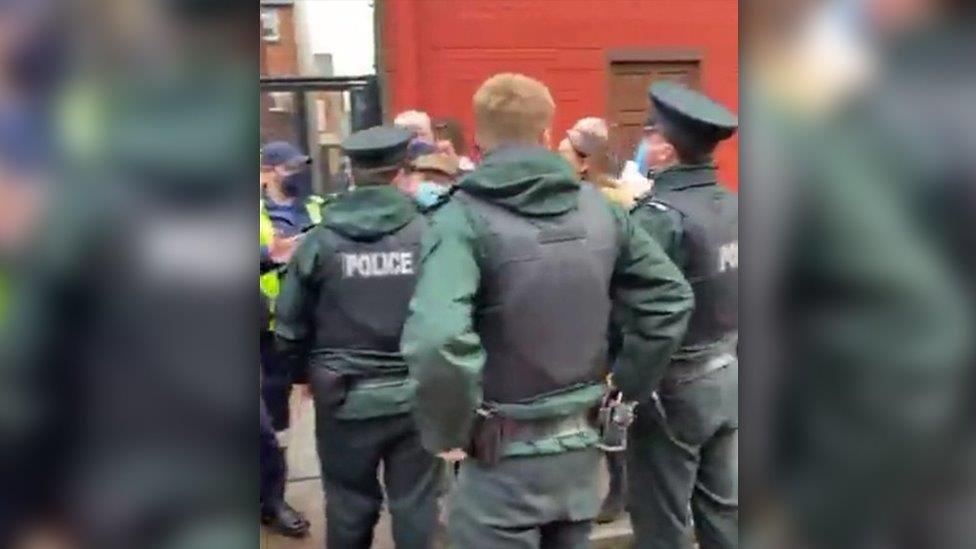Simon Byrne: Justice minister 'has confidence' in NI police chief
- Published
"It's not about scapegoats or putting people under a bus"
Northern Ireland's justice minister has said the chief constable has her confidence after a row over an arrest at a memorial event on Friday.
Simon Byrne is meeting political parties, as he insists he will not quit over pandemic policing mistakes.
A man was arrested at an event marking the 29th anniversary of the loyalist murders of five people at Sean Graham's bookmakers on Belfast's Ormeau Road.
The chief constable has apologised and one officer has been suspended.
"I don't think it is good to personalise this around one individual," Naomi Long told BBC Radio Ulster's Good Morning Ulster programme.
"I think whoever would have been chief constable last week, this could still have happened and we would still have had this situation evolving over the last number of days.
"The test for Simon is how he deals with this and I am absolutely committed to working with him and rebuilding the community confidence that has been damaged."
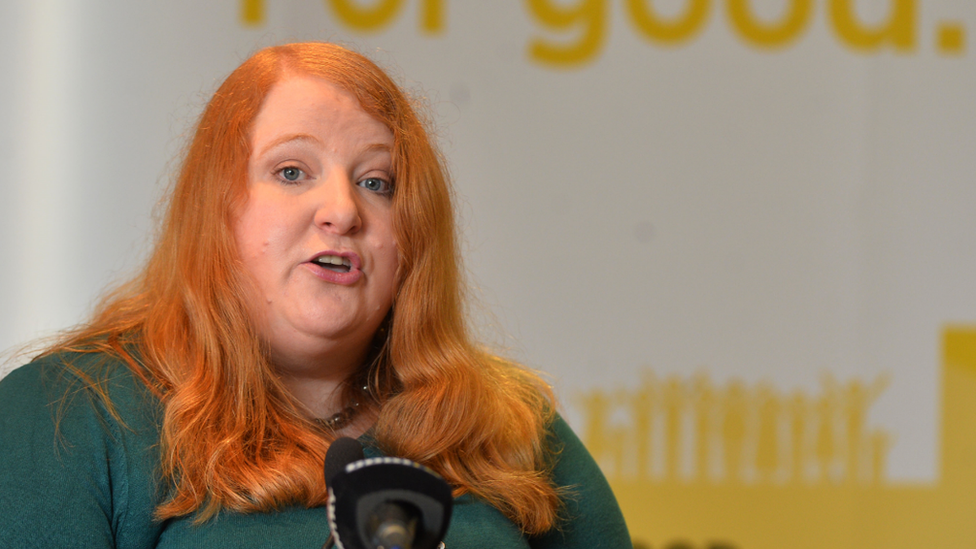
Naomi Long said she did not think it was good to "personalise" the issue
Mr Byrne is discussing the fall-out with Sinn Féin, the Democratic Unionist Party (DUP) and SDLP on Monday.
It is understood there will be separate meetings with other parties over a two-day period.
Despite the Democratic Unionist Party (DUP) and Sinn Féin having separate issues with the chief constable's statement of apology on Saturday, Mr Byrne said he has been "very encouraged" by what he heard from people over the weekend.
Deputy First Minister Michelle O'Neill said there was a "crisis in confidence" in policing among nationalists over the PSNI's handling of the commemoration.
Following a meeting with Mr Byrne on Monday, she said she had "left the chief constable in no doubt that the events of recent days are a watershed moment for policing and public confidence in policing".
"We need to see a change in the culture and ethos of policing with the community and that needs to start immediately," she added.
"I also raised the frustration of the families of those killed in the Ormeau Road massacre and the need for the Police Ombudsman's report into the killings to be published as soon as possible.
"There is a pressing need to address the legacy of the past and that needs to be done by implementing the legacy mechanisms of the Stormont House Agreement in a human rights compliant manner."
'Trial by social media'
The DUP questioned why action was taken against officers before the outcome of a Police Ombudsman inquiry.
DUP leader Arlene Foster said police decisions should be "based on the law and not politics".
Speaking after she led her party delegation in a meeting with Mr Byrne, Mrs Foster said they had outlined their concerns and asked for the full facts.
"The swift response by the chief constable has all the hallmarks of trial by social media and of two young officers being scapegoated," she said.
"While we understand the need for a proportionate and sensitive policing response, operational decisions must be fair and balanced.
"There should be no apology for enforcing the rule of law."


Friday was a disaster for community relations with the police and indeed the PSNI's perceptions within wider nationalism and republicanism.
On its own, in isolation, it would be bad enough.
But the problem for the PSNI - and by extension Mr Byrne as its chief constable - is that there have been a series of serious controversial policing issues in this pandemic, including BLM protests and, of course, funerals of paramilitary figures.
It was the accumulation of all these things that I think brought up the leadership question.
But politics and policing a divided society is a major factor in all this. That has been forgotten at times.
The executive parties have reminded themselves of this over the weekend and I think there is a collective push to calm things down a bit.
There is an awful lot of bridge building to be done and I think there is an acceptance all round that he and his senior team needs to be allowed time and space to do.
The last thing parties want is to intensify a policing crisis in the midst of everything else going on.

SDLP leader Colum Eastwood said political leaders had a responsibility "given all of the tension out there over the last couple of weeks, to dial down the rhetoric, to stay calm and to work through the process".
"There is an awful lot at stake here, around policing, around power-sharing, around the stability of our institutions and the stability of our community and I think we have to hold firm in encouraging people to work through the process," he said.
Footage of the incident has been posted online
In an interview with BBC News NI, Mr Byrne said: "I have to reflect personally on what happened. I am not so arrogant I can not listen to criticism and concern.
"I came here to do a job and am determined to see it through. If I walked out, the same issues would be in the in-tray of my successor.
"Sometimes policing and politics buffer up too close and we need to take a step back. We need a period of calm."
Mr Byrne rejected claims by the DUP and the Police Federation that the suspended officer had been "scapegoated" for his role, despite a Police Ombudsman investigation into officer conduct barely having started.
"It is not about scapegoats or putting people under a bus," said Mr Byrne.
"It is not unusual in serious situations to suspend people and we have taken that decision carefully."
He said senior officers had studied body worn camera footage of those who attended the scene.
The chief constable said at this point he could not apologise specifically to Mark Sykes, the man who was arrested, as a police investigation was still ongoing.
Sinn Féin has asked for Mr Sykes not to face further action.
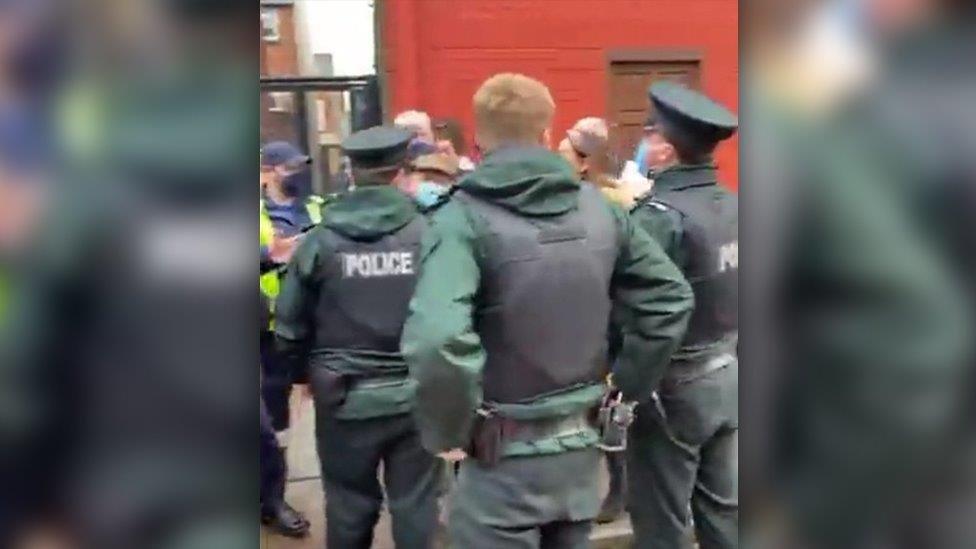
The events on the Ormeau Road on Friday are being investigated by the Police Ombudsman
Mr Byrne also revealed the anniversary event was known about by more senior officers in the district, but it was two probationary constables who came across the scene on Friday.
They both passed out of training college only last summer.
The full circumstances of their deployment will form part of the ombudsman investigation.
Relatives for Justice, who support the families of the victims of the Ormeau Road gun attack, have rejected police claims that up to 40 people were at the event, when coronavirus regulations limit public gatherings to six.
They said that no more than 15 people were on the street, socially distanced and in household bubbles, representing the families of four of those who were murdered in the shooting.
They also claim that at no stage were health regulations mentioned by the officers.
- Published30 August 2023
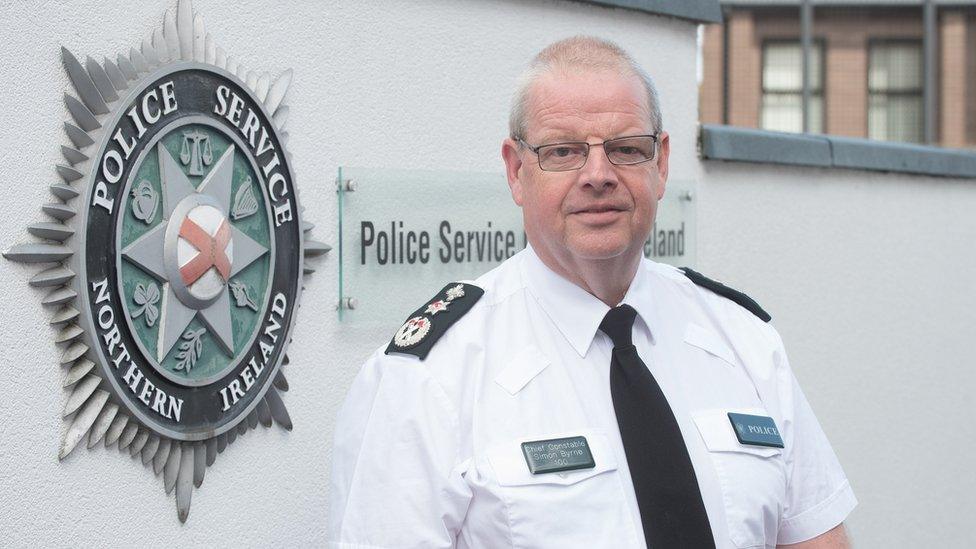
- Published7 February 2021
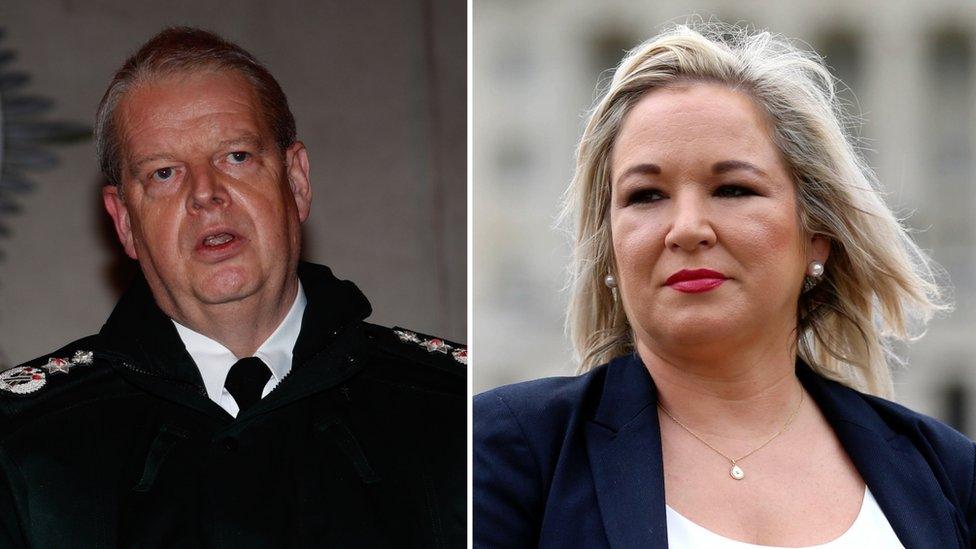
- Published6 February 2021
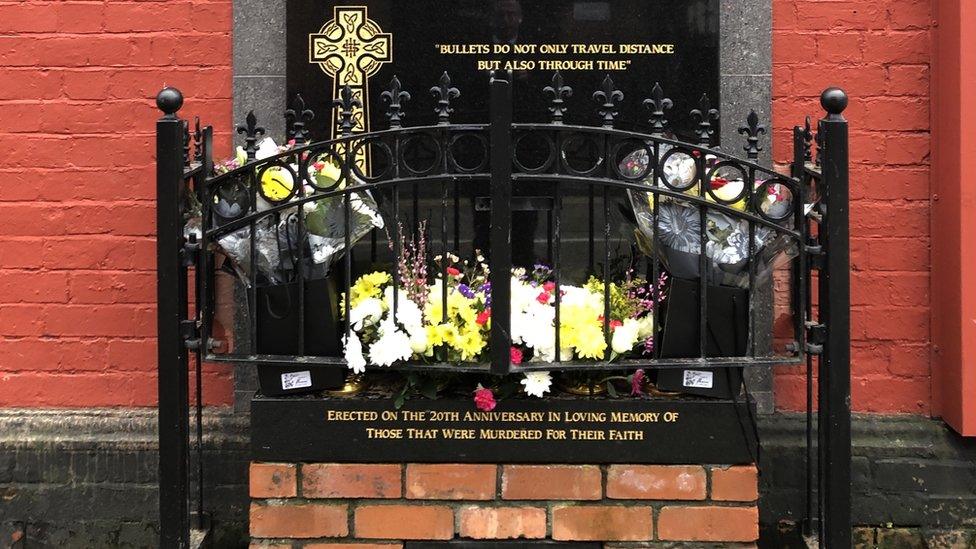
- Published5 February 2021
